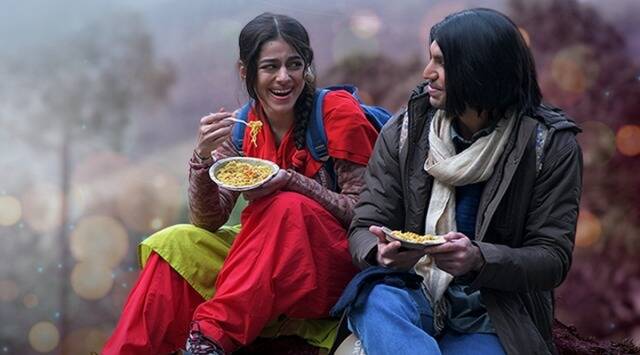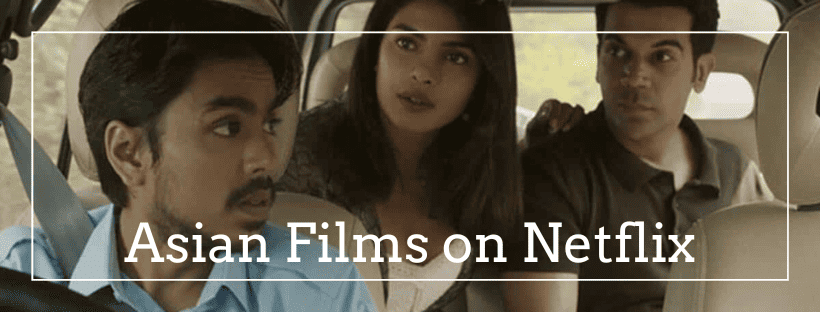In recent years, one of Hindi cinema's most distinct voices to reckon with, Anurag Kashyap, has made a few interesting choices behind the camera. His latest feature, starring Karan Mehta and Alaya F, is a romantic drama targeted at the Gen Z, thus continuing the director's pattern of not allowing himself to be boxed in. Kashyap has credited his daughter for the film's genesis in multiple interviews, of how she brought a valuable insight about the generation to the project. But is the film really as simple as it appears on the surface? Soon after watching, you realize how inevitable it is to separate a filmmaker's voice from his work, as a wise storyteller just needs to package the story around it differently.
The movie revolves around two stories: one in Dalhousie, the other in London. The Dalhousie portion features a schoolgirl, Amrita, falling for a young free spirited man, Yaqub. In London, a rich girl of a Pakistani billionaire, Ayesha, is smitten with an upcoming DJ, Harmeet, who rebuffs her. The segments run in parallel, and on the surface don't have an immediate connection, except for one: DJ Mohabbat. He's the sort of pop cultural icon one aspires to not just hear, but feel. Both Amrita and Harmeet are huge fans of the DJ, but are nurtured around a constantly imposing environment that restricts them to feel anything but indifference toward each other. The story set in London, on the other hand, is about the giddiness of feeling too much, and the consequences that it could lead to.
DJ Mohabbat also runs a popular podcast on love, talking about his philosophies that even refer to Gulzar saab. There are no melodramatic backstories here – modernity has already approached, and social media now imposes on the younger minds, until it starts informing their lives. But every love story has consequences, otherwise it doesn't warrant itself of being told (as even DJ Mohabbat implies to one point in the film).
Anurag Kashyap's cinema revolves around consequences, sometimes born out of violence and power, and other times born out of love in a society descended into the former two. The two love stories only collide once the characters begin to see through the oblivion they were earlier living in – one that kept them away from the corners of patriarchy and bigotry. It's precisely this fascinating conceit that escalates the personal into the political, as if transferring the desires as well as troubles of these lovers onto the audiences themselves.
“Sab sunte hai Mohabbat ko”, Amrita says at one point in the film while defending her personal choices in front of her bigoted family. Thus, she's idealistic by virtue of being in the religious majority, yet simultaneously dresses under the burkha to talk philosophically as a Tiktoker. “Stand kya hota hai?”, she asks Yaqub at one point in the film while referring to a motorcycle. She is naive enough to perceive her family's desperate search for her as a concern, unable to see through the blatant bigotry clear in sight. Eventually, it's her inability to take a stand that leads to a startling consequence.
On a level, the movie almost unravels itself like a post modern new wave Iranian film; the character motivations become something as trivial as attending a musical concert. It's a minimalistic desire that still isn't immune enough to the hate-brewing machinery of the state, a choice which thematically further compounds the absurdity of the times we're living in. And yet, Kashyap retains the elevated genre conventions that the film is structured around; it is after all a story about celestial connection where things aren't always supposed to make logical sense – they merely exist as clever contrasting allegories.
What I love about the film the most is its palpable curiosity of exploring the generational conflicts and fears of an internet-nurtured India. Concurrently, the screenplay, also written by Kashyap (first film he's written since “Ugly”), while tackling the lawlessness of religion in our intolerant society also sheds light on the politics of consent in the West. This is narratively echoed at a point when Yaqub jokingly says how India too was once in England. The choice of the second backdrop, too, makes deeper thematic sense, as most of the systemic laws and regulations in India were passed down from the country it had gained independence from. Yet the sensibilities and interpretation of those very laws differ; the issue of the girl being a minor ends up in grave consequences abroad, and in India, the communal tension usurps the former.
“Almost Pyaar with DJ Mohabbat” marks one of the more interesting films we've had in Hindi cinema during a time when circumventing the systemic hate of the state has become difficult. The political themes never feel didactic, and adroitly masquerade underneath a love story(ies). In fact, once you think about the film retrospectively, it appears as a story born purely out of societal trauma. An inverted love story, if you may, where the cheesiest frame is only saved for the very last moment. It's in that surreal moment where the loosely floating dots come together.
















